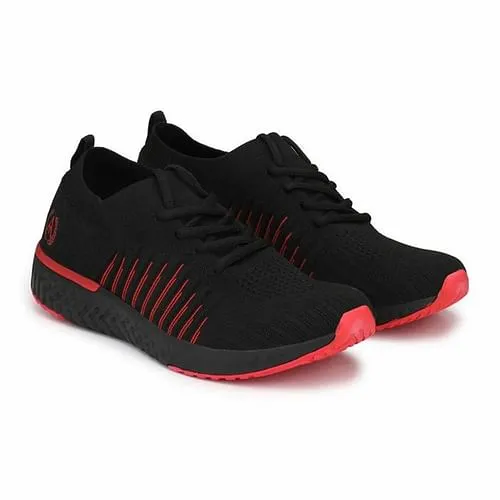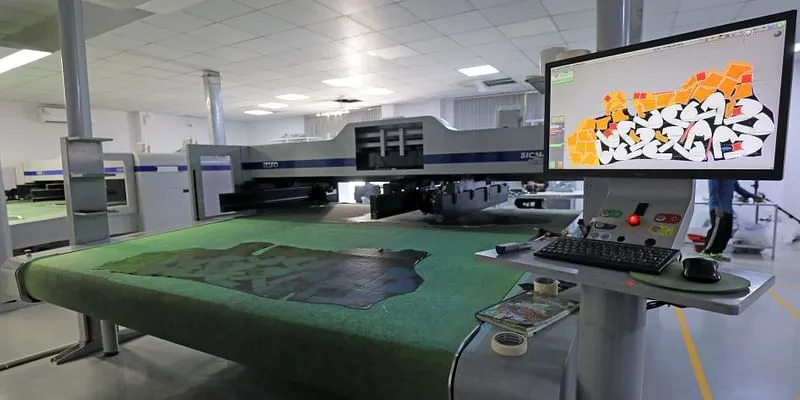This Rs 35 Cr homegrown footwear brand is capturing the organised market alongside Bata, Nike, Adidas, Puma
Despite the presence of well-known brands like Bata, Nike, Adidas, and Puma, the unorganised market produces 75 percent of the footwear in India. With customers’ tastes changing rapidly, here’s how new-age footwear brand Alberto Torresi is innovating to capture the unorganised market.
Dominant footwear brands such as Bata, Nike, Adidas, and Puma can claim superior product quality without being challenged. However, smaller and newer Indian footwear companies can’t rely on popular brand value to help justify the international quality of their products.
One might think this would pose a problem for Agra-based Virola International when it decided to launch footwear of European quality in the Indian market. But it was not an issue for Virola - the leading footwear manufacturer was already making shoes for the European market under its brand Alberto Torresi.

Ishaan Sachdeva, Director, Alberto Torresi
When Virola brought Alberto Torresi to Indian shores in 2010, it appointed Ishaan Sachdeva, from the business family, as the brand’s director. In the last decade, Ishaan has grown Alberto Torresi into a popular formal and casual shoes brand, taking its domestic turnover to Rs 35 crore.
Explaining the brand’s history, Ishaan tells SMBStory in an exclusive interaction:
“Virola launched Alberto Torresi as a label in Europe. European shoe retailers didn't have a registration for their products, and they needed a brand name to function. That name was provided to them by Alberto Torresi. Then, we started seeing great demand for our products, and started off as a brand in India.”
From Italy back to India
Initially, the primary target for the brand was the Italian market. When the Sachdeva family was thinking of a brand name, it knew the name needed to suit the Italian market. One of Virola’s older international designers was named Alberto Torresi. Despite not having any unique meaning, the name was good enough for the Italian market, and Virola went ahead with it.
Despite the international-sounding name, building the Alberto Torresi brand wasn’t easy for Ishaan. There was substantial effort put into research and development for materials, design, aesthetics, fittings, comfort, etc. The shoes, made from imported materials, also pass through rigorous manufacturing processes and quality checks before they are finally approved.
“We feel our footwear products are in a league of their own. Uniquely crafted to support the whole body, the footwear is fitted with shock cushioning and sturdy gripping soles to reduce strain on the legs, back and feet. The footwear is ergonomically designed to ensure it fits perfectly and gives optimum comfort,” Ishaan says.

Alberto Torresi's Jerry Black sneakers
Product pricing
Alberto Torresi’s slippers and sandals for men retail at an MRP of over Rs 3,500, while its shoes and boots start at similar prices and cost over Rs 5,000. The products are often on discount on the brand’s website and on popular ecommerce platforms.
Ishaan says the pricing of the products is decided according to the market. “Without a proper price, the best of products could go unsold, so the prices of the market are compared for similar products. We try to ensure that our customers derive good value for the price they pay, aiming at maximum customer satisfaction,” he explains.
A strong foundation
If not for family business Virola’s strength in shoe manufacturing, Alberto Torresi likely would not be able to ensure European quality at prices that are premium but not completely out of reach.
When Virola was started in 1950, it was funded with Rs 25,000 taken from the founders’ personal savings and from friends and family. Gradually, it started making its own footwear for the domestic market. In 1989, it started exporting its footwear under the name Virola International.
At present, the Agra-based enterprise has five merchandise factories, in which Alberto Torresi’s footwear is also manufactured. For many decades, Agra has been known as one of the top footwear production hubs in India, besides Kanpur, Ranipet, Vaniyambadi, Ambur, etc.
Urbanisation, higher disposable incomes, and media influence are changing the needs of consumers and dictating the types of footwear produced by these hubs for brands.
An evolving market
Dominant players in the organised market include well-known international brands such as Bata, Nike, Adidas, Puma, etc. But customers’ tastes are changing so rapidly that scores of footwear brands, both old and new, are innovating and trying to capture the unorganised market.
“Footwear retailing is always fast-paced, and the speed at which it is changing is escalating. The advent of new technology is significantly affecting the way we shop and also the way footwear is supplied. High street competition has always been intense, and retailers are used to having to accommodate for rapidly evolving styles and the emergence of new suppliers,” Ishaan says.
Today, customers increasingly expected seamless service, guaranteed product availability, and fast delivery from dominant brands as well as newer entrants in the market. For Ishaan, this means the speed of product development and manufacturing has increased, despite the sequence of product lifecycle remaining largely the same.
“The way the product is brought to market can significantly affect flexibility, cost, and availability. We are now much more integrated into the supply chain, and for us, effective supply chain management is critical,” he adds.

A robotic cutting machine at Alberto Torresi's factory
Challenges from the unorganised sector
Organised retailers and brands cannot hope to combat the unorganised market without optimising supply chains and becoming cost-effective.
Despite the presence of international labels such as Adidas, Nike, and more, the footwear sector in India is largely fragmented and close to 75 percent production comes from the unorganised sector, which includes micro, small, and medium enterprises (MSMEs), according to a Research and Markets report.
Ishaan admits Alberto Torresi has faced “immense competition as unorganised players try to enter the industry and take over by waiving off taxes, and this only affects organised companies.”
“Over the years, many new companies have entered the footwear market, and there's a field full of competitors trying to improve product quality, reduce prices, and obtain good marketing strategies. Many have excelled in one way or another. We try to make our products of better quality, as all the goods we use are high quality. Our Indian craftsmanship and artisans are the real heroes of our product,” he explains.
Focus on online selling and COVID-19 impact
Besides the impact of ecommerce, demonetisation, and implementation of GST, the sluggish growth in the Indian leather market has added to the brand’s challenges. But after persevering through the difficult periods, its focus has ended up on ecommerce and its website.
“We built a user-friendly website that ensures easy and hassle-free shopping for our customers. Our ecommerce platfomr is now a fast-growing revenue channel and all the production processes are digitised,” he says.
With the COVID-19 pandemic resulting in people spending more time at home, the footwear industry has taken a hit. Ishaan says the category of formal shoes, which is Alberto Torresi’s main highlight, has been affected by this.
In response, the brand aims to increase focus on casual footwear. The brand intends to work on comfortable and stylish open footwear, catering to the current demands of the market.
The process of actively listening to customers and the evolving market demand is one of Ishaan’s core business values.
“The challenge is that no matter how big you get, there’s always a risk. It is really an ultra-marathon where you need to keep moving and listen to your customers all along the way,” Ishaan says.
(Edited by Teja Lele Desai)









